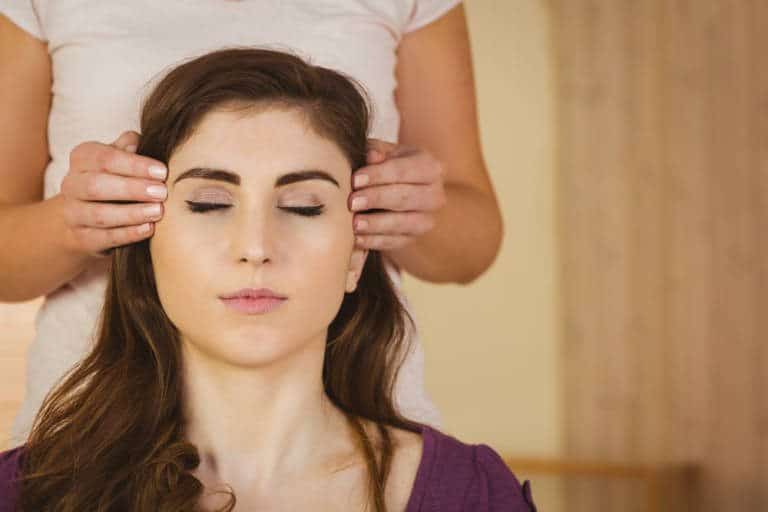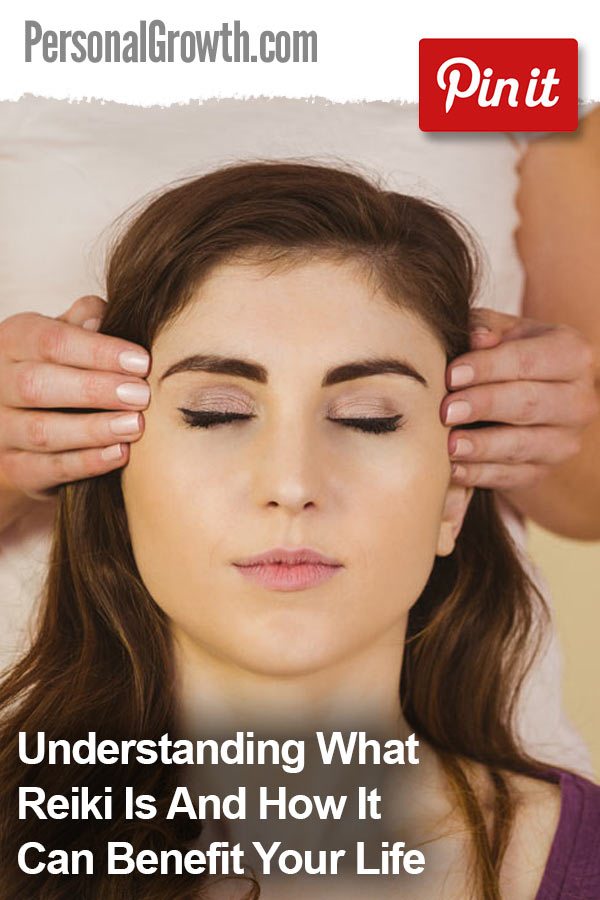

The Japanese word, “reiki” is a combination of soul or spirit (rei) and vital energy (ki), which gives a good indication of what to expect from this old and versatile healing system.
According to some translations it also means “universal life force energy,” but whatever you call it, reiki has been around for thousands of years. It was initially used as a Tibetan Buddhist tradition, but reiki as it is practiced today was rediscovered by a Japanese scholar, Dr Usui, in the late 19th century.
Its non-physical energy is known by different names, such as Prana, Ki, or Chi, depending on the different cultures, but they all believe it is the life force behind every living organism.
How Does Reiki Work?
The healing powers of reiki stem from the fact that the therapist is able to channel energy to the recipient in order to activate their natural healing processes. In doing so, they are able to assist with restoring the emotional and physical well-being of the person.
What Are The Benefits Of Reiki?
Reiki offers a myriad of benefits, but one of the most important is the way in which it is able to provide relaxation and stress reduction. Once the body releases its stress and tension, its natural healing abilities are automatically triggered and it is able to maintain and improve health.
In addition to accelerating the self-healing abilities of the body, reiki is also able to aid in better sleep, provide relief from pain, and help the body to clean out toxins.
Because reiki brings balance to the mind and emotions, treatments can provide the recipient with a peaceful and calmer state of being. This is of great benefit to anyone who suffers from mood swings or is experiencing anger, fear or frustration.
Those who are in the quest for spiritual growth can also use reiki to achieve inner peace and harmony. Since it enhances your capability to love, reiki can heal and strengthen personal relationships.
Those who suffer from emotional distress or sorrow can find relief through reiki. The grieving process is usually very draining, but with reiki you are able to clean and clear the emotions and gain perspective instead.
Reiki can also help with problems on a physical level, by reducing the pain of migraines, sciatica, and arthritis, for example. Other physical conditions, such as asthma, insomnia and chronic fatigue can also have their symptoms alleviated through reiki.
What Does Reiki Feel Like?
Some people experience no sensation at all during reiki, while others have reported warmth, coolness, a mild tingling or a flow of energy.
The Five Reiki Principles
When Dr. Usui taught his students reiki, he also developed its five principles. These principles serve as guidelines to help people achieve balance and perspective in their life:
Remember that these five principles are not rules, and even if you fall short you can still try to do better the next day.
8 Common Misconceptions
1. Reiki Is Not A Religion
Even though reiki is spiritual in nature, it is not a religion and there is no need for practitioners to change their spiritual or religious beliefs.
2. Reiki Does Not Replace Regular Medical Or Psychological Treatment
Reiki is meant to work in harmony with other forms of healing in order to provide improved results, but it is not meant as a replacement for regular medical or psychological treatment. Anyone who suffers from these conditions is encouraged to visit a licensed health care professional in addition to the reiki treatments.
3. It Does Not Take A Long Time To Learn Reiki
Those who want to learn how to perform reiki can take a beginning class which is taught over a weekend. This means that reiki can be learned in a day or two. These classes should include instructions on how to give treatments, as well as practice on how to perform the treatments.
4. Reiki Is Not Only For Humans
The benefits of reiki are not just reserved for humans, but can also be performed on animals and plants. Just remember that, as with humans, reiki is not a substitute for proper veterinary care or medical procedures.
5. Reiki Is Not A Miracle Cure
Because some conditions may take years to manifest physically it is impossible to miraculously cure something, like a disease, in a few reiki sessions. In addition to the reiki, the person suffering from any serious ailments should also make the proper lifestyle changes, as well as seek medical attention.
6. Reiki Will Not Cause Harm
The great thing about reiki is that nothing is applied to the skin and no substances are ever ingested. No pressure is ever applied and the treatment is non-manipulative. This means that reiki is not only suitable for anybody, no matter their age, but will not cause any harmful side effects.
It is typically performed in a calm and peaceful environment, without the need to remove any article of clothing. In fact, reiki can even be given over a distance, so there is no need for physical contact.
7. You Don’t Have To Be Ill For Reiki To Work
It is often believed that in order to experience any benefits from reiki one has to be ill, but this is not the case. Reiki can also be used in a preventative manner to support the immune system or whenever you want to relax. It is even useful if you simply want a quick pick-me-up to increase your energy levels.
8. Reiki Doesn’t Just Mask Symptoms
Unlike many medicines, reiki doesn’t simply mask or relieve symptoms, but restores the balance of the body on all levels. Because of this, it is able to work directly on whatever conditions or problems the body is experiencing.

